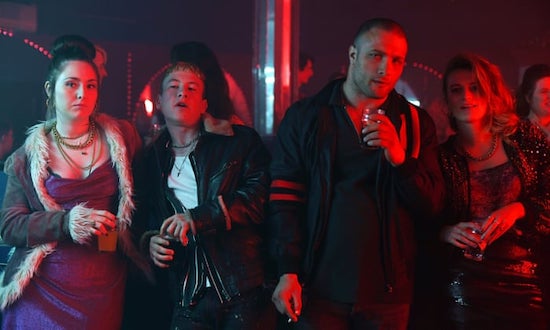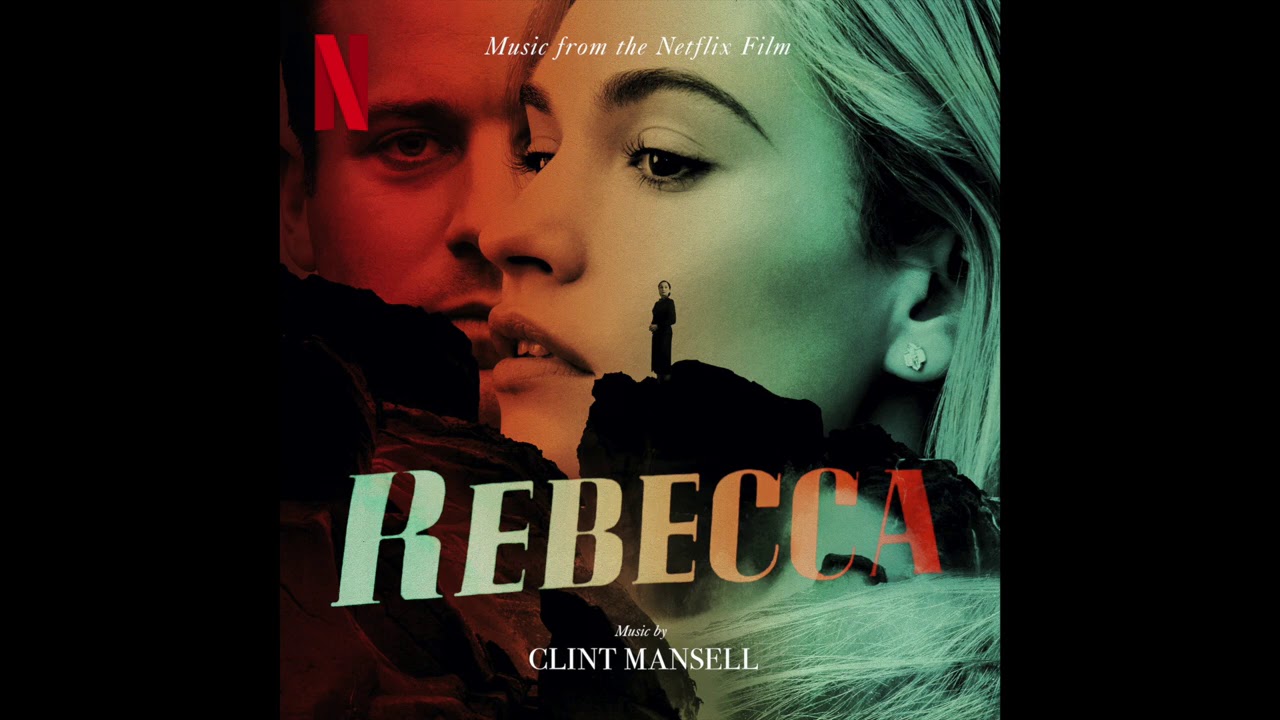I don’t know if it’s comforting or not to read that, in this absolute shitshow of a year, the soundtrack fountain has been flowing plentifully. It’s certainly helped to have a distraction, and I guess if you’re going to bury yourself in something during lockdown music is far from the worst.
Musically, 2020 took a huge hit with the death of the great Ennio Morricone in July. Il Maestro was regarded by many as the greatest individual to ever write music for the screen, and given his huge and diverse back catalogue, it’s difficult to argue. Also passing this year was Johnny Mandel, notable for writing the tune ‘Suicide is Painless’, otherwise known as the theme from both the film and TV show MAS*H.
The film industry has been decimated by the coronavirus, which subsequently saw countless blockbusters that multiplexes rely on pushed back and back: James Bond’s No Time To Die is perhaps the biggest casualty, meaning we won’t hear Hans Zimmer’s score until sometime next year (Billie Eilish’s theme, however, is cracking). A knock-on effect is that the playing field has been levelled somewhat—with VOD being the primary conduit for now, there has been a lot more opportunity for smaller films to rear their heads without being bustled out of the way by Hollywood. And as a by-product, we have a more varied diet of soundtracks.
When I look at the great music that has erupted from visual media this year, none of it comes from what you’d term as a “big film". Even the ones that might come close are still maybe too original, like the score for David Fincher’s Mank by Trent Reznor and Atticus Ross, or Armando Ianucci’s The Personal History of David Copperfield with music by Christopher Willis. A Charles Dickens film that’s not being shown over three nights on BBC2? Get out of here. Nevertheless, both pictures yielded impressive soundtracks that deserve all the plaudits that should come to them.
Speaking of Mank, Netflix also released several eye-catching projects with the likes of Clint Mansell (Rebecca) and Terence Blanchard (Da 5 Bloods) scoring. Netflix have also helped defined the binging age of television, and really, TV is responsible for a lot of incredible music this year. Chess drama The Queen’s Gambit had many applauding Carlos Rafael Rivera’s classically tense score, the second season of Homecoming has benefited greatly from an original Emile Mosseri soundtrack, while the aforementioned Blanchard has done wonders with Perry Mason. And that’s not even mentioning Star Wars series The Mandalorian, where Childish Ludwig Goransson has mixed his modern palette with the traditional John Williams symphonic sound.
Electronic and non-traditional scores have come to the fore, with genre films pushing this trend forward. Jim Williams’ ethereal Possessor is one of the most intense, while Ben Lovett’s The Wolf of Snow Hollow takes cues from Bernard Herrmann and Angelo Badalamenti to establish its idiosyncratic approach that shouldn’t work, but does. Geoff Barrow, Ben Salisbury, and The Insects’ soundtrack for Devs has been lauded for its haunting take on Alex Garland’s latest sci-fi techno-horror, and the wonderful Calm With Horses is a beautiful dreamy meditation on violence and loyalty by celebrated artist and DJ Blanck Mass.
That’s not to say there hasn’t been some exceptional work in the more conventional symphonic area. As mentioned, Christopher Willis’ David Copperfield is an absolute joy, and Andrew Lockington’s Kindness of Strangers seduces you with its sumptuous soundscape, while Blanchard’s Da 5 Bloods is a straight symphonic wonder. It hasn’t all been good though; I haven’t jibed with what Ludwig Goransson did on Tenet, and Dolittle finds the normally reliable Danny Elfman on autopilot.
But the worst thing again this year has been the seeming lack of female and non-binary composers. Looking over the year and who has been handed the juicier assignments, it feels like there is a huge deficit in giving non-male composers a chance, especially with average composers getting big scores for female-led films. Once again the ubiquitous Hans Zimmer is given the reins of DC’s Amazon goddess for Wonder Woman 1984, the big Disney remake of Mulan went to Harry Gregson-Williams, and Underwater, with Kristen Stewart as its lead Ripley-type heroine, was scored by Marco Beltrami. This needs to change, because there are undoubtedly the composers out there to fill these roles. Rachel Portman, Mica Levi, Tamar-kali, Yoko Kanno, Laura Karpman – get them in.
10. Clint Mansell – Rebecca (Invada)
It must seem almost impossible to keep up with Mansell, and he’s come up with a stunning score for Rebecca. He’s kept his modernist style while adapting it to the period demands, similar to another Ben Wheatley literary adaptation, Ballard’s High-Rise. As anyone who knows the story, it’s obsessed with the title character and Mansell cleverly introduces a three-note motif for her that echoes across different instruments and registers like, well, a ghost. As the score continues the colour gets darker and darker and there’s a definable pain that Mansell describes, which isn’t necessarily healed when the end comes.
9. Terence Blanchard – Da 5 Bloods (Milan)
What’s constantly astounding about Terence Blanchard’s work is his ability to shift aesthetics like no other composer, which he’s done again for Spike Lee’s film. There’s an immediate dialogue in the music that wrestles with the US and the decision to send troops to Vietnam, and America’s patriotism and God-given sense of righteousness that conflicts with the bloodshed in Indonesia, and this is deeply felt in the score. But what Blanchard also does excellently is emotionally sincere music, and this comes across with the gorgeous inspirational theme that powers the quintet through the picture, where he’s able to give the score the kind of huge melodic setting usually reserved for something like Star Wars. Like Lee’s films, it just feels incredibly powerful.
8. Geoff Barrow, Ben Salisbury, and The Insects – Devs (Invada)
This extraordinary score to the FX science fiction drama Devs carries on the exemplary work by Barrow and Salisbury on previous Alex Garland projects Ex Machina and Annihilation, also bringing on Bristol duo Tim Norfolk and Bob Locke aka The Insects. Coming out of this quartet is a stunningly haunting piece that is always questioning, with cues developing within themselves in what feels like some kind of self-awareness. It morphs into a kind of undefined state which is broken when interrupted by Tuvan throat singing in a sly homage to the Gyorgy Ligeti in Kubrick’s 2001, and action horror music akin to Jerry Goldsmith’s Alien, all of which eventually evolve and cohere into something truly beautiful.
7. Hannah Peel – The Deceived (Silva Screen)
Northern Irish composer Hannah Peel won awards for the 2013 Channel 4 drama Dates and her music here for the Channel 5 psychological thriller deserves to win more. For a start it’s as beautiful as it is terrifying, with a Wendy Carlos-esque synth line complemented by swirling strings setting a troubling mood, further emphasised by a lonely solo piano that suggests a hidden secret to be uncovered. Perhaps unexpectedly, Peel turns the score into a white-knuckle ride with whispering voices and violin bows charging into the high registers, and this ebbs and flows as the musical stage becomes more and more open, with a creepy music box melody that develops into a more ominous setting and allows this surprisingly good record to reach an satisfyingly intense climax.
6. Robert Glasper – The Photograph (Back Lot Music)
Glasper opens The Photograph with a great bass riff that is reinterpreted across the record, before being reprised in full on piano in the finale. It captures the feel of the score, and that end-of-night romantic freedom, with a touch of apprehension and ambiguity that will take a while to be resolved. But Glasper’s music has a patience to it, even with the short running time, and there are moments of chill and intensity and regret. One particular moment sees piano and saxophone come together to create a relentless groove, and when it all comes together at the end, there’s an incredible sense of closure without it being explicit. It’s a beautiful thing.
5. Tamar-Kali – Shirley (Milan)
Despite the film being essentially a relationship drama, Tamar-Kali’s score for the unique Shirley Jackson biopic ventures into the kind of eerie and unsettling atmosphere that Jackson created in her books. Using a small palette of strings and piano, Tamar-Kali imbues the music with dissonance that is often overbearing, pointedly so. Shirley feels like a score for a horror movie, with the plucked strings and off-kilter voices inciting a kind of frenzy that doesn’t resolve itself melodically until late in the album. It leaves you with a disconcerting feeling, like a wisp of smoke on the wind.
4. Emile Mosseri – Kajillionaire (Mondo)
Perhaps the breakout superstar of recent times, Emile Mosseri works in a style that is frequently lush, but certainly not predictable. His catchy love theme opens the LP with a sense of familiarity, but quickly hits a sharp right with Angel Olsen’s elegantly sinister cover of Bobby Vinton’s ‘Mr Lonely’. It’s followed by distorted guitars treated like brass, revealing an incessant piano melody backed by soaring female vocals that builds with the orchestra to envelop you like a sea of Lovecraftian appendages. It’s a super-cliché, but it defies a base categorisation; it’ll seem normal for a second and suddenly get really, really weird, which, to be honest, feels amazing.
3. Brian Eno – Film Music 1976 – 2020 (UMC)
The essential film music compilation of the year, this record collects interesting pieces and rarities from Eno’s various soundtrack exploits over the years. Of significant note is the meditative ‘Blood Red’ from a 2005 BBC Arena programme on Francis Bacon, the heady ‘Beach Sequence’ from Beyond the Clouds, which was a part of the Passengers project with U2, and the appropriately tense ‘Late Evening in Jersey’ from Michael Mann’s Heat. Taking into account more infamous tracks such as the serene ‘Deep Blue Day’ (aka the Trainspotting toilet swim music), the spectacular ‘Prophecy Theme’ from David Lynch’s Dune, and the killer ‘An Ending (Ascent)’ from space documentary For All Mankind, this is a superior LP.
2. Warren Ellis – This Train I Ride (Invada)
The 2015 Turkish drama Mustang proved Warren Ellis can cut the mustard when he’s not partnering with Nick Cave, with his ghostly score for documentary This Train I Ride offering more elegant proof. Ellis’ music suggests that the women who hop onto "iron horses" are lost spirits of a kind, and as such he gives it a nomadic touch that allows the narration to intertwine, with the fabric ensuring both are essential on this journey of searching souls. Loneliness inhabits the score but it’s overtaken by purpose, with Ellis’ narrative claiming that as a triumph as he illustrates the concept with this beautiful, ethereal jam. As strong as its subject.
1. Blanck Mass – Calm With Horses (Invada)
What’s amazing about Blanck Mass’ score to the affecting crime drama is the way he encapsulates the emotional centre in the opening theme. There’s something downtrodden about the melody, and you feel that if it were a bit sharper it might work for a typical Michael Mann character. But here the existential crisis is happening in rural Ireland with small-time drug dealers instead. The violence in the film isn’t really scored; instead it’s the motivation behind it, the conflict of loyalty between blood and money, and the whole work has this characteristic of inevitability threading through it that makes it electric.












